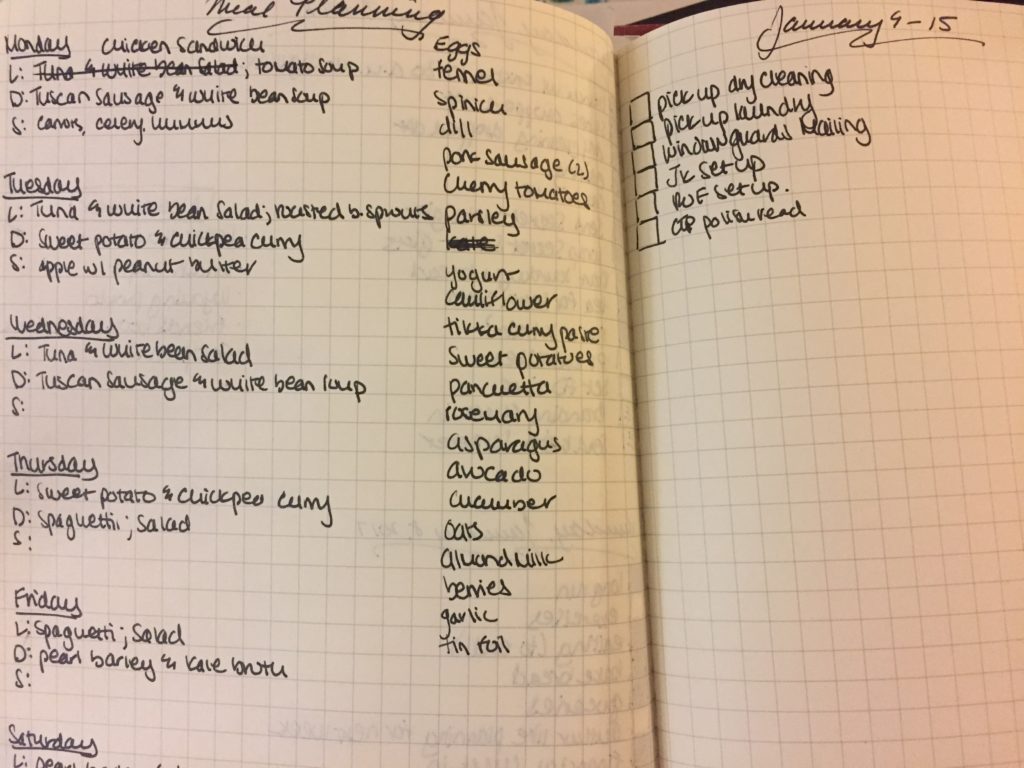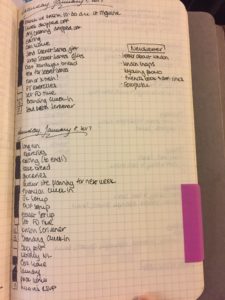Last year was a game-changer for me. My first books with a publisher came out, and I switched roles at my day job and took on more responsibility than I've ever had before. The only way I was able to keep on top of those big, big changes and everything that came along with them was because for the first time in my life I found a planning system that works for me. Some people are planners and some people aren't. I'm definitely the planning kind, but in 30 years of searching I hadn't found a system that I liked. I've tried everything from simple pen and paper lists to complicated apps that give you lots of options to categorize and tag your tasks. Typically I'd use a system for a month thinking I'd found something I could stick with, but then each and every time I'd cast it aside because it didn't fit.
It turns out, I was looking for a planning system that "looks like my brain" and mimics the way I think. I found it when I discovered bullet journaling.
I'm not going to teach you how to bullet journal. There's a whole website dedicated to that and the video above is a good place to start. (I'm also not terribly artistic so I won't be showing off inspirational, beautiful bullet journal pages.) What I am going to do is tell you why this system worked for me.
Remember how I said I needed an organizational plan that looks like my brain? Bullet journaling has stuck with me for more than a year because it's flexible and nimble, just the way my brain is. I use a squared Moleskine Cahier notebook in a larger traveler's notebook for my bullet journal. That means no strict calendar pages or pages that I'll leave blank and that will bother me when I'm on vacation. Perfect.
My bullet journal is basically two types of to do lists and a meal planner. When I sit down each week, I start with a spread of two blank pages. This is my weekly spread. The left-hand side is a meal planning page with each day broken down into lunch, dinner, and an afternoon snack (especially important on days when I know I'll be working out after my day job). I use that page to plan a week ahead of time when I'm going to be cooking and build a grocery list next to it.

On the right side of the weekly spread I create a to do list for the entire week. This isn't every minor task that needs to get done, but the big picture things or tasks I don't want to forget about if they're a few days out. I don't separate out personal life, day job, and writing because I've found that if I do I neglect the tasks that I'm less enthusiastic about. (Who really wants to pick up their dry cleaning when it's 18 degrees outside?) If it's all in once place, I can't avoid it.

The second type of to do list I use is a daily one. I wanted to save paper in this example so I collapsed Saturday and Sunday onto the same page, but you can see that each task is listed. If I didn't finish a task on one day, I carry it over and write it down the next day. The list is always changing and very flexible, but it's always there. Since I'm adding everything from writing to appointments to household tasks, I always know what my time constraints look like at a glance. If I go on vacation, I can set the bullet journal aside and not worry about wasting paper.
Many people are attracted to bullet journaling because of the "collections" (more permanent lists that can easily be found because many bullet journalers also create an index and page numbers for their collections). I use a separate notebook to write down all of the books I read each year, and this year I've expanded to include a list of all of the movies I watched. For now, however, that's enough for me. I've realized that the best organizational system is one that you actually use, and the weekly spread, meal plan, and daily lists are what works for me.
What if any planning system do you use? I'd also be really curious to hear what readers to do keep track of their books. Goodreads? A paper list? Let me know by leaving a comment!
